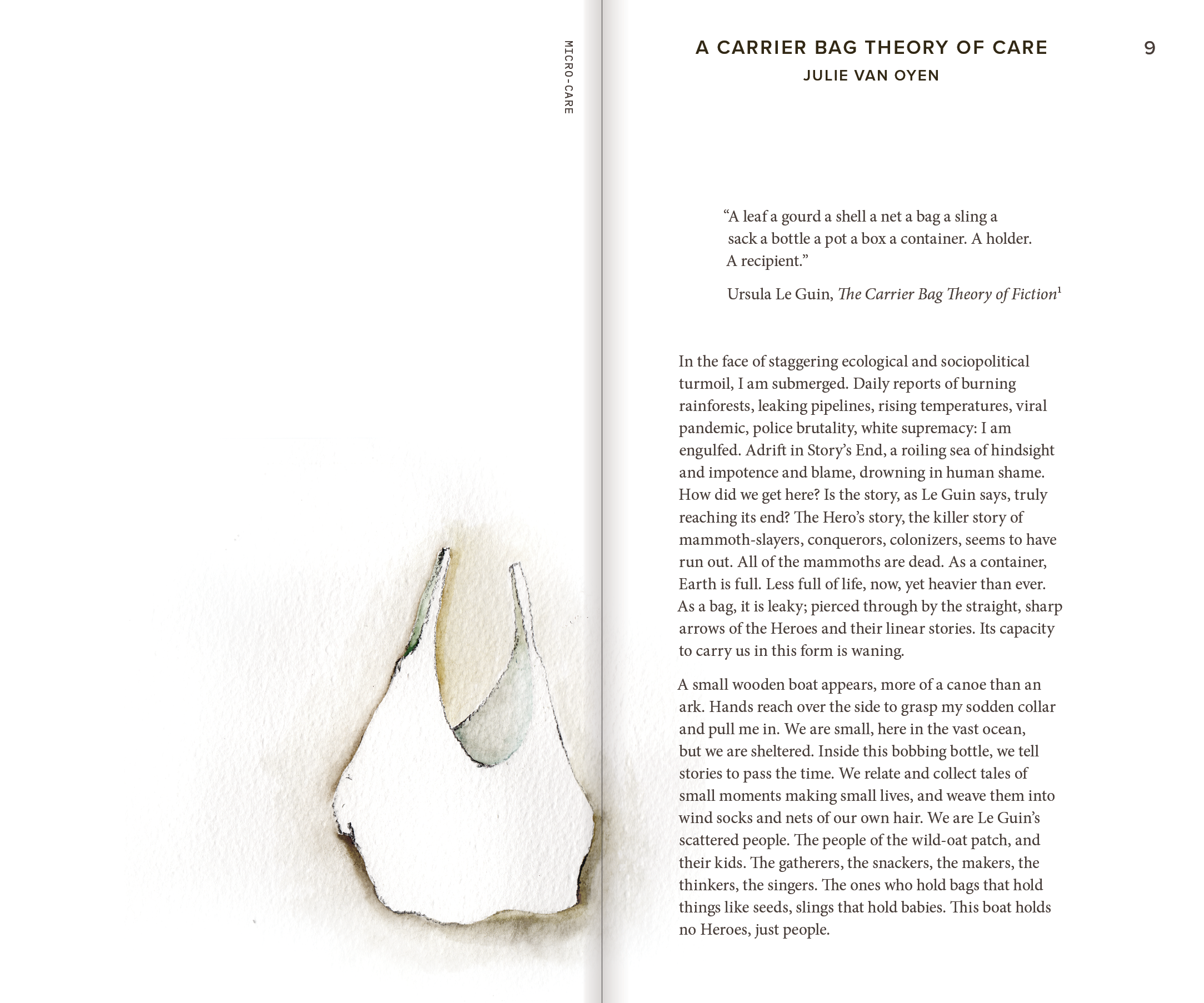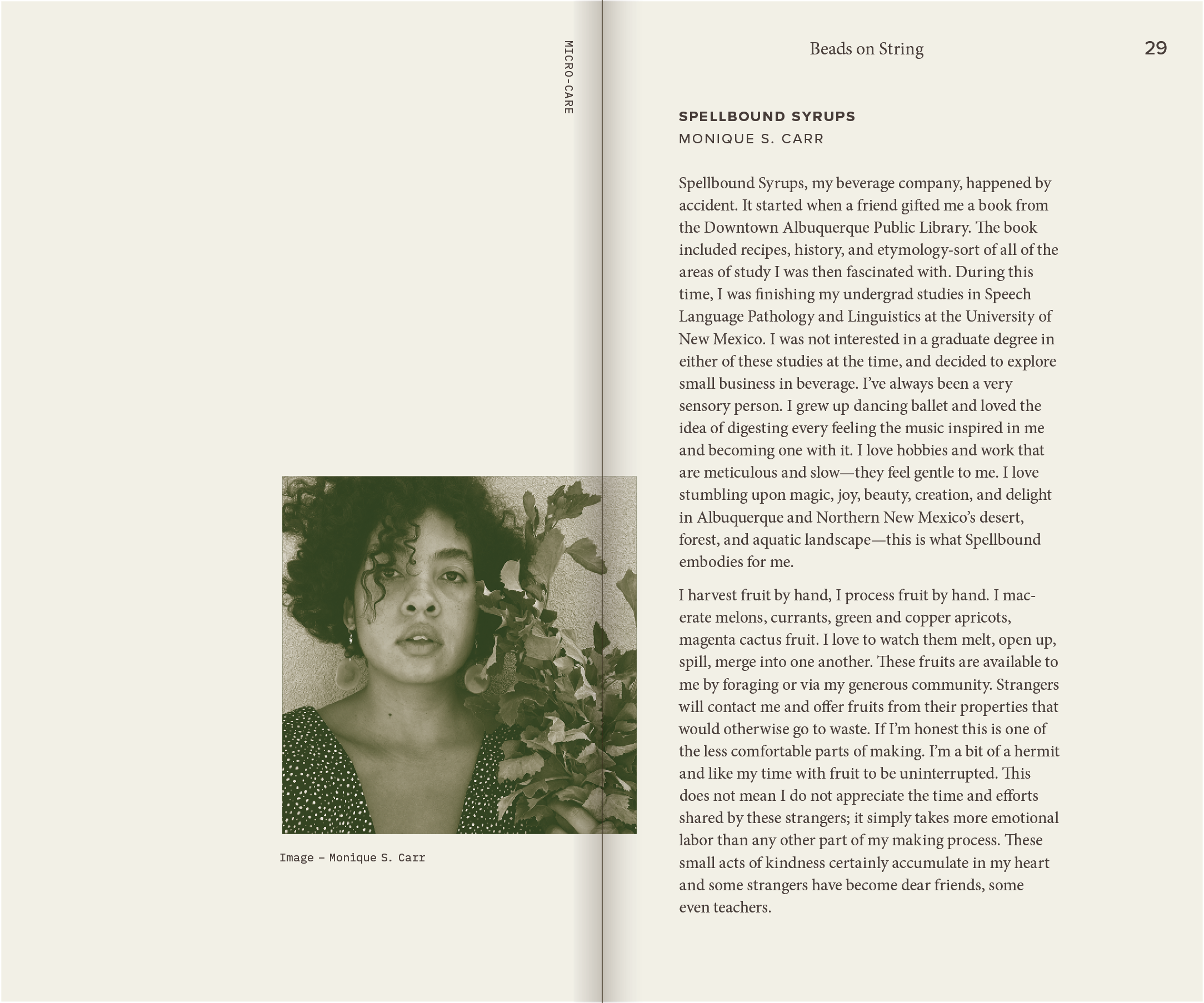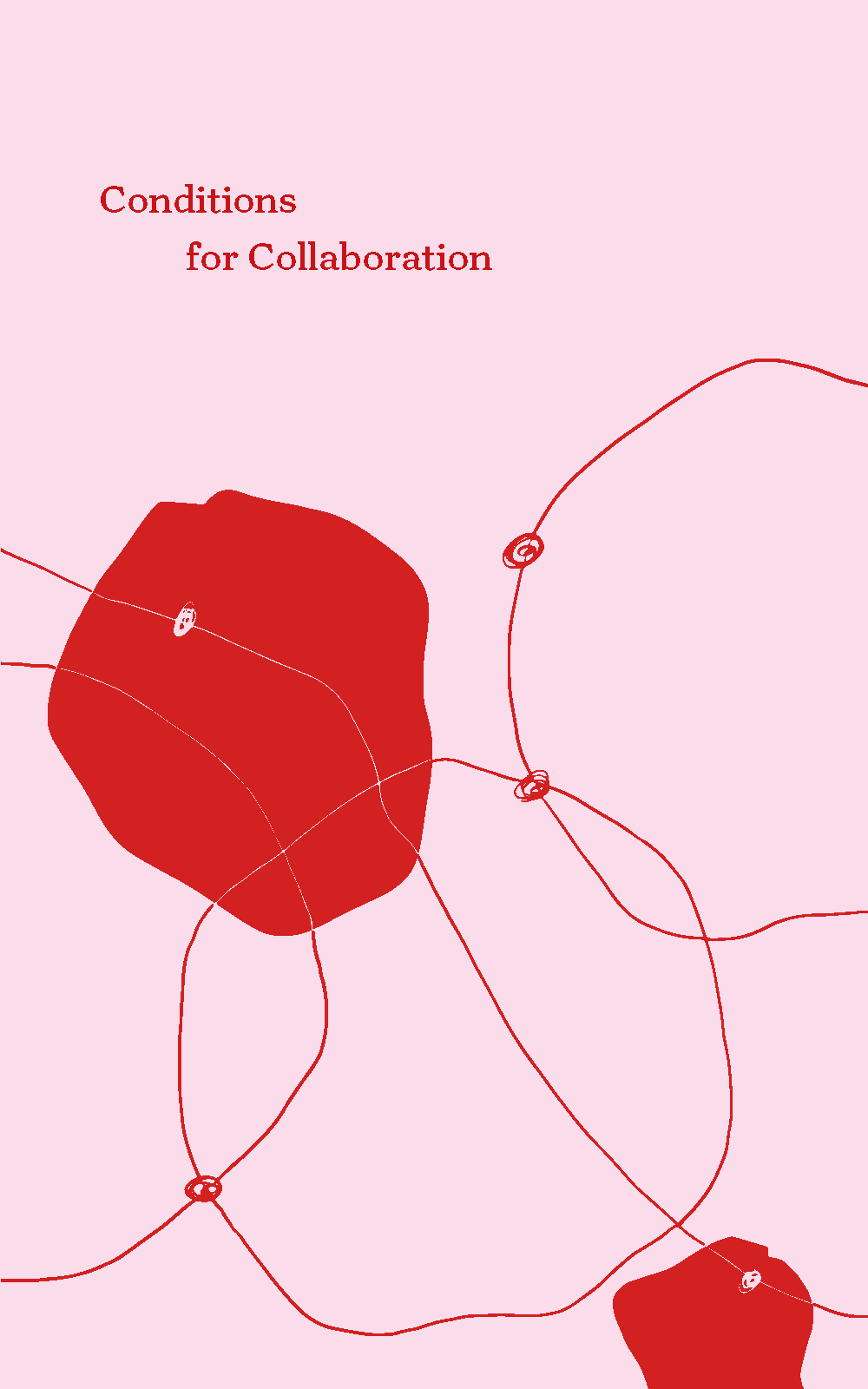Conditions for Collaboration
2024
2024
Essay and workshop looking at collaborative teaching within an art and design university. Produced with Annie Canto, with support from the ECUAD Teaching and Learning Centre.
Read essay
Read essay
Lheidli: Where the Two Rivers Meet: Decolonizing Cultural Safety Education Through Cultural Connections
2023
2023
Cultural Connections is an Indigenous community-led approach to cultural safety education that seeks to decolonize the healthcare system through making and dialogue.
This project was a collaboration between the Aboriginal Gathering Place and the Health Design Lab at Emily Carr University of Art + Design (ECUAD) and the Director of Aboriginal Education at the College of New Caledonia (CNC).
Read project and exhibition publication
Read Design Research Society paper
Two Rivers Gallery Exhbition News story
This project was a collaboration between the Aboriginal Gathering Place and the Health Design Lab at Emily Carr University of Art + Design (ECUAD) and the Director of Aboriginal Education at the College of New Caledonia (CNC).
Read project and exhibition publication
Read Design Research Society paper
Two Rivers Gallery Exhbition News story

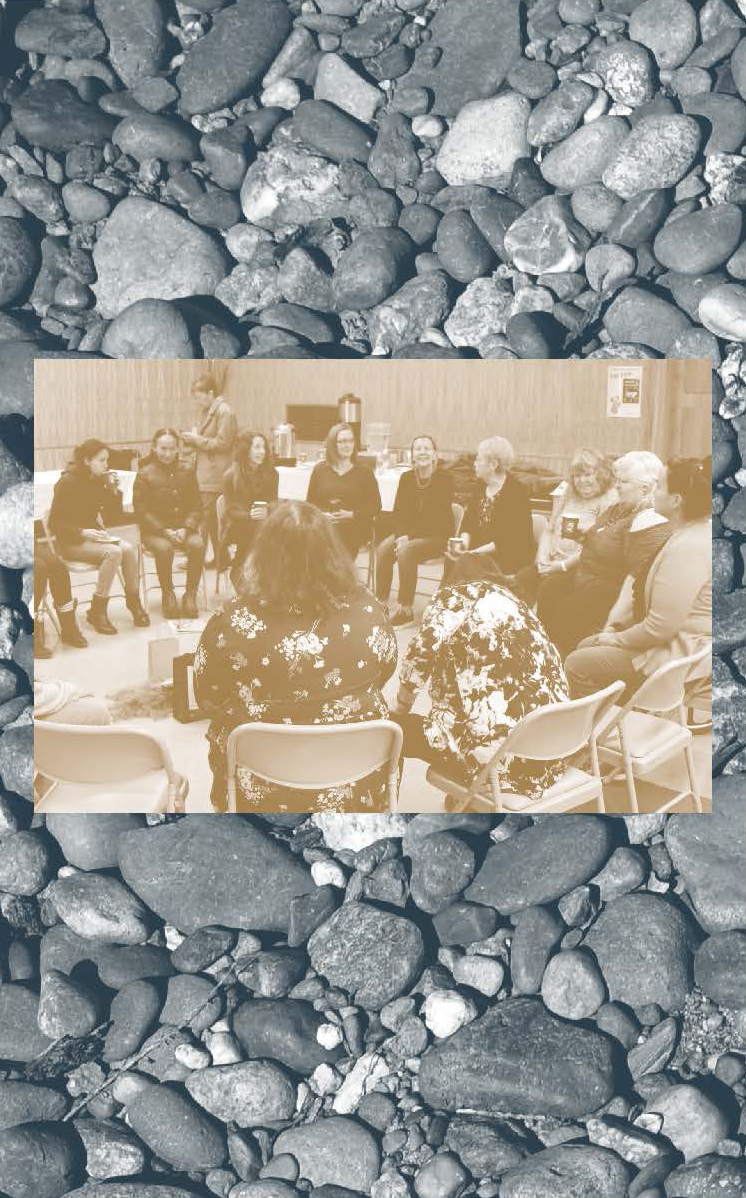




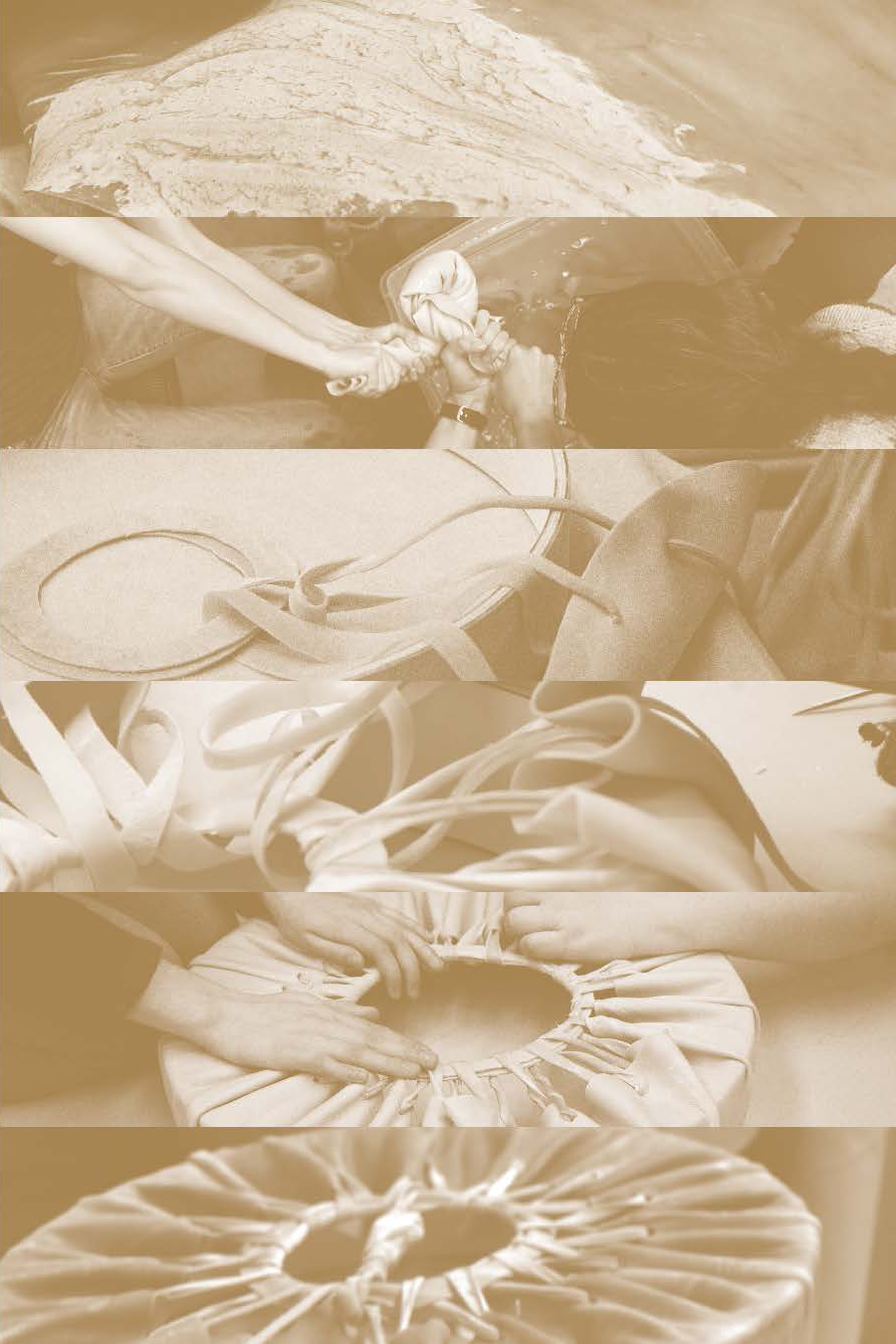
Place-Based Responsibility Context Paper
2021
2021
Written with Laura Kozak, this paper provides a brief context and framing for a series of roundtables, guided walks, class activities, research projects and resource sharing under the broad umbrella of Place-Based Responsibility. This practice invites and explores a variety of forms of gathering, collaboration, and learning as we collectively take up this question.
Read contextual paper
Read contextual paper

POOL: What Can We Learn When We Find New Ways to Gather?
2020
2020
Workshop series created and facilited with with Annie Canto and Nura Ali, through the Satellite x DESIS Residency.
POOL fosters community-based practices that explore new ways of gathering and collective learning. Anti-racist pedagogy, decolonial methodology, and peer-to-peer solidarity make up the core of our practices. With these interests at the heart of our work, this project expands our understanding of community support and activism by exploring new ways to gather that embody relational and mutually supportive ways of being, and challenge the hegemonic structures that disconnect us from the communities and ecologies we live within. We explore new kinds of connectivity that can be fostered in this time of precarity and to learn from the practices of labour organizers, artist/activists, and social justice scholars who are beginning to transition their work to and from distant spaces.
Read glossary
POOL fosters community-based practices that explore new ways of gathering and collective learning. Anti-racist pedagogy, decolonial methodology, and peer-to-peer solidarity make up the core of our practices. With these interests at the heart of our work, this project expands our understanding of community support and activism by exploring new ways to gather that embody relational and mutually supportive ways of being, and challenge the hegemonic structures that disconnect us from the communities and ecologies we live within. We explore new kinds of connectivity that can be fostered in this time of precarity and to learn from the practices of labour organizers, artist/activists, and social justice scholars who are beginning to transition their work to and from distant spaces.
Read glossary
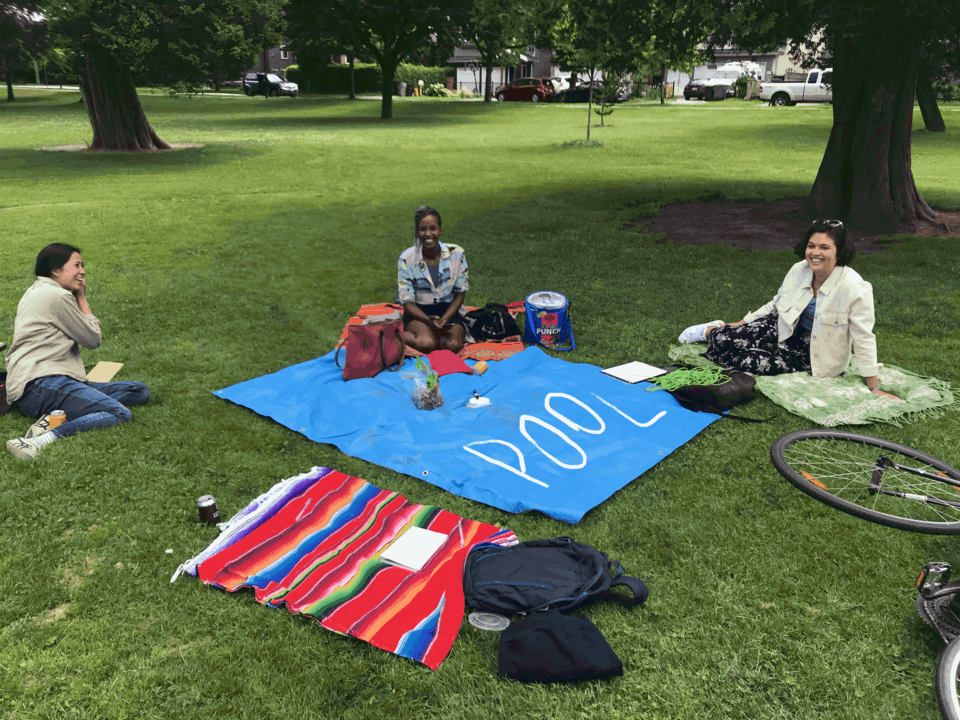
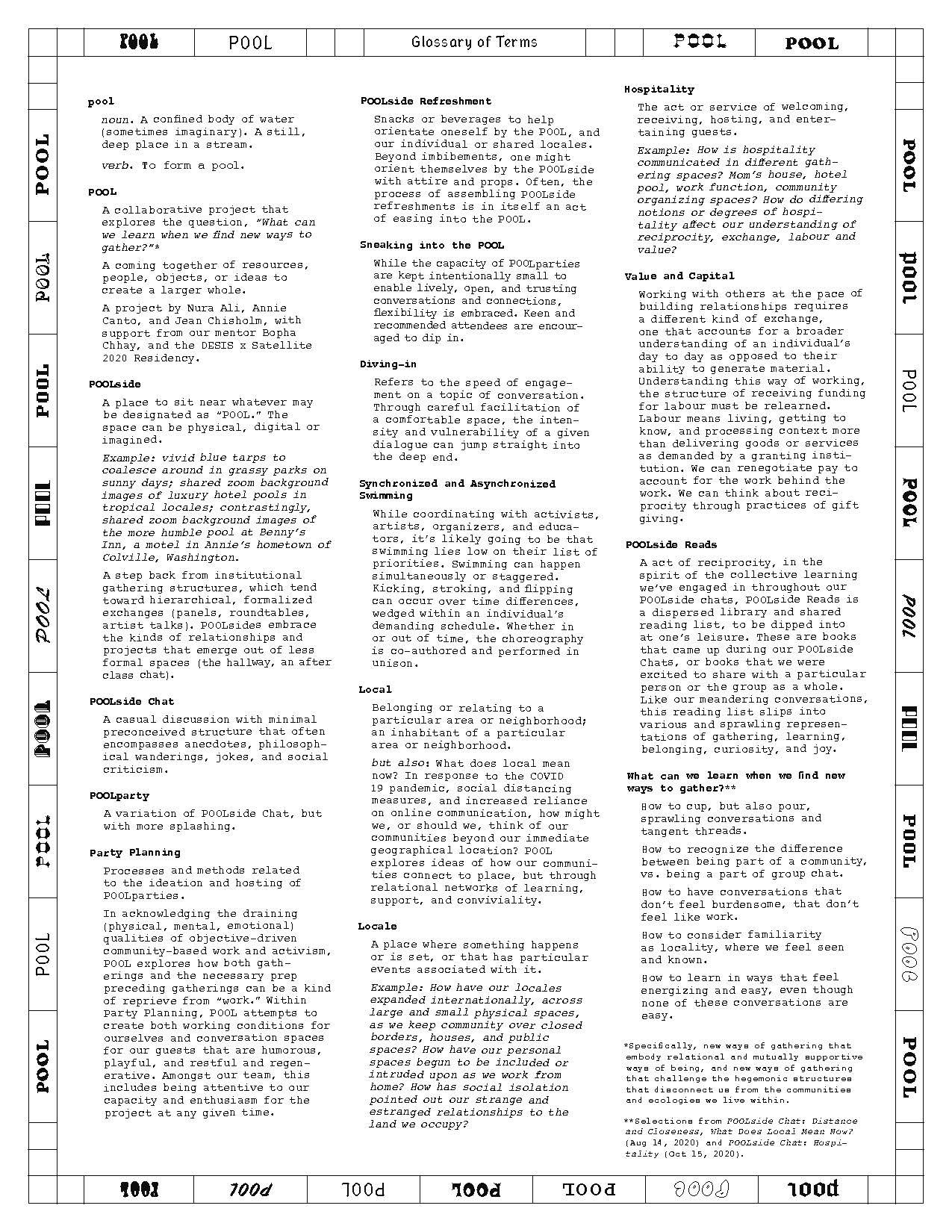
Micro-Care: Small Acts of Resilience for Living within the Earth’s Caring Capacity
2020
2020
Rearched and facilited with with Laura Kozak, Avi Farber, and Julie
Van Oyen, ECU Research, 2020-2021.
In April of 2020, while we and the world scrambled to come to terms with a global pandemic, a small group of us assembled to respond to a Policy Horizons Canada report called The Next Generation of Emerging Global Challenges: Living within the Earth’s Carrying Capacity. This project began from a place of searching for optimism and agency in the shadow of massive and systemic forces. We documented and discussed modest actions of resilience and care for ourselves, each other and the systems surrounding us, our weekly discussions themselves became a typology of care through the tumultuous spring of 2020. Compiling our observations, actions and conversation, the Micro-Care publication holds our divergent but intersecting reflections on care, beginning from the smallest seed of ourselves. Through remaining humble relative to the global challenges laid out in the Policy Horizons Canada report, we hope our work can create a container for complex and meaningful interactions to spill from.
Digital publication featured in Wendy’s Subway x Libby Leshgold Gallery Archive of Mutual Care and Action, Publishing the Present, 2020.
Read publication
Van Oyen, ECU Research, 2020-2021.
In April of 2020, while we and the world scrambled to come to terms with a global pandemic, a small group of us assembled to respond to a Policy Horizons Canada report called The Next Generation of Emerging Global Challenges: Living within the Earth’s Carrying Capacity. This project began from a place of searching for optimism and agency in the shadow of massive and systemic forces. We documented and discussed modest actions of resilience and care for ourselves, each other and the systems surrounding us, our weekly discussions themselves became a typology of care through the tumultuous spring of 2020. Compiling our observations, actions and conversation, the Micro-Care publication holds our divergent but intersecting reflections on care, beginning from the smallest seed of ourselves. Through remaining humble relative to the global challenges laid out in the Policy Horizons Canada report, we hope our work can create a container for complex and meaningful interactions to spill from.
Digital publication featured in Wendy’s Subway x Libby Leshgold Gallery Archive of Mutual Care and Action, Publishing the Present, 2020.
Read publication

